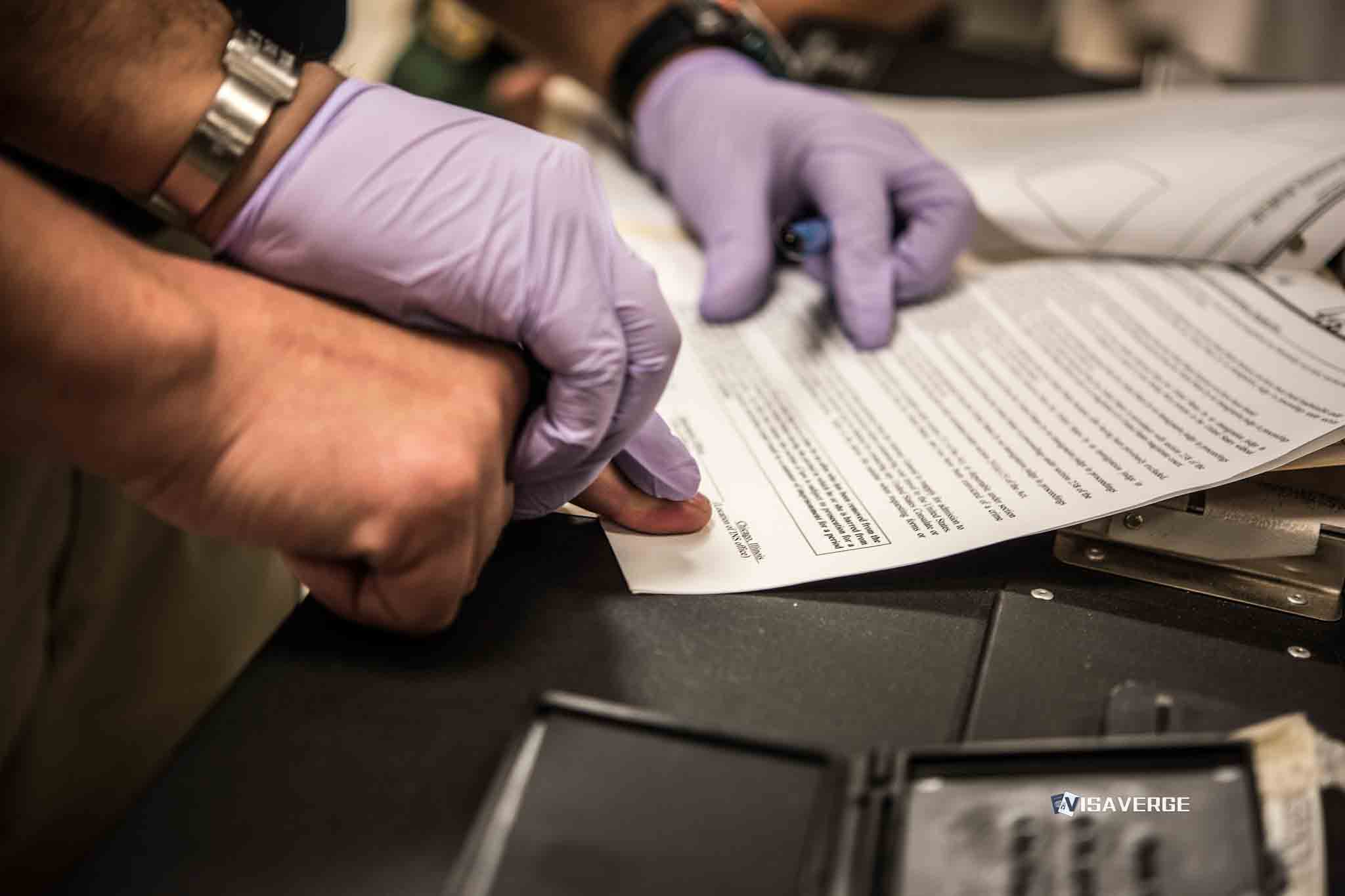Key Takeaways
• Henrry Villatoro Santos, 24, faces deportation after Trump administration seeks to dismiss firearm charges from March 27, 2025.
• Defense fights dismissal due to risk of harsh imprisonment in El Salvador’s CECOT and insufficient evidence of gang leadership.
• Judge Fitzpatrick paused dismissal; case could set precedent on deportation procedures and due process for alleged gang members.
Federal authorities under the Trump administration are at the center of a high-profile legal battle involving Henrry Villatoro Santos, a 24-year-old Salvadoran national whom officials have labeled as a top MS-13 leader. The case, unfolding in Alexandria, Virginia, has drawn national attention and sparked debate over how the United States 🇺🇸 handles alleged gang members, the balance between criminal prosecution and deportation, and the rights of immigrants facing removal.
Who is involved?
– HENRRY VILLATORO SANTOS: A Salvadoran national, accused of being a top MS-13 leader.
– TRUMP ADMINISTRATION: Seeking to dismiss criminal charges to speed up deportation.
– DEFENSE ATTORNEY MUHAMMAD ELSAYED: Fighting to keep the criminal case open to prevent rapid deportation.
– U.S. MAGISTRATE JUDGE WILLIAM FITZPATRICK: Overseeing the legal proceedings.

What is happening?
The Trump administration is trying to drop criminal charges against Villatoro Santos so he can be deported quickly to El Salvador 🇸🇻. The defense is pushing back, arguing that deportation could put Villatoro Santos in grave danger and that the government has not provided enough evidence to support its claims about his alleged gang leadership.
When and where?
– Arrest: March 27, 2025, in Virginia.
– Legal proceedings: Ongoing as of May 23, 2025, in Alexandria, Virginia.
Why does it matter?
This case highlights the Trump administration’s approach to immigration enforcement, especially regarding people accused of gang involvement. It raises questions about due process, the use of expedited deportation, and the standards for labeling someone as a gang leader.
How is it unfolding?
The government wants to dismiss the criminal case, but the defense is appealing, and the judge has temporarily paused the dismissal. The outcome could set a precedent for how similar cases are handled in the future.
The Legal Battle Over Henrry Villatoro Santos
Arrest and Charges
On March 27, 2025, authorities arrested Henrry Villatoro Santos in Virginia. During a raid, they found four guns, two silencers, and ammunition. He was charged with being a foreign national in possession of a firearm—a serious offense under U.S. law. However, the Trump administration quickly shifted focus from prosecution to deportation.
Key facts:
– Arrested: March 27, 2025
– Charges: Foreigner in possession of a firearm
– Evidence found: Four firearms, two silencers, ammunition
Government’s Push for Dismissal
The Trump administration asked the court to dismiss the criminal case against Villatoro Santos. Their goal is to deport him as soon as possible, rather than pursue a lengthy criminal trial. U.S. Magistrate Judge William Fitzpatrick agreed that the decision to drop charges is usually up to prosecutors, saying, “the court cannot and should not second guess decisions that are uniquely prosecutorial in nature.”
However, the judge allowed the case to remain open for a short period, giving Villatoro Santos’s lawyer time to file a separate lawsuit to block deportation outside the normal process.
Why dismiss the charges?
– Expedite deportation: The administration believes removing Villatoro Santos quickly is the best way to protect public safety.
– Avoid lengthy trial: Criminal trials can take months or years, delaying removal.
Defense Response and Legal Maneuvering
Defense attorney Muhammad Elsayed is fighting to keep the criminal case alive. He argues that if Villatoro Santos is deported, he could be sent to CECOT, El Salvador’s notorious anti-terrorism prison, where conditions are harsh and survival is uncertain. Elsayed also wants assurances that Villatoro Santos will not be expelled under the Alien Enemies Act, a rarely used law that allows for fast removal of certain foreign nationals.
Defense concerns:
– Risk of torture or death: CECOT prison is known for extreme conditions.
– Lack of due process: Rapid deportation could bypass normal legal protections.
– Insufficient evidence: The government has not provided clear proof that Villatoro Santos is a top MS-13 leader.
The Role of the Courts
Judge Fitzpatrick initially agreed to dismiss the charges but paused his ruling after the defense appealed. The case is now being reviewed by a higher-level judge in Alexandria, Virginia. This legal tug-of-war has created what CBS News called a “unique paradox,” with the government trying to drop charges and the defense fighting to keep them.
The Trump Administration’s Approach to Gang-Related Deportations
Public Statements and Evidence
After Villatoro Santos’s arrest, Attorney General Pam Bondi, FBI Director Kash Patel, and Virginia Governor Glenn Youngkin held a press conference. They described Villatoro Santos as:
– One of the top three MS-13 leaders in the United States 🇺🇸
– The top MS-13 figure on the East Coast
– Responsible for overseeing violent crimes
Despite these strong claims, the government’s charging documents only briefly mention MS-13, stating that FBI agents “observed indicia of MS-13 association in the garage bedroom” of Villatoro Santos’s home. No further details about his alleged leadership or specific crimes were provided, even when reporters asked for more information.
Key points:
– Strong public claims: Officials labeled Villatoro Santos as a major gang leader.
– Limited evidence: Official documents provide little detail about his alleged role.
Broader Deportation Strategy
The Trump administration’s handling of the Villatoro Santos case fits into a larger pattern of targeting alleged gang members for quick deportation. President Trump recently met with Salvadoran President Nayib Bukele at the White House to highlight their partnership in removing “violent illegal immigrant killers, rapists, gang members, and other sick criminals” from U.S. streets.
Other recent deportations:
– Jose Lopez-Cruz: Confirmed MS-13 member, deported to El Salvador 🇸🇻
– Miguel Angel Fuentes-Lopez: Confirmed MS-13 member, also deported
According to analysis by VisaVerge.com, these actions are part of a coordinated effort to show tough enforcement on gangs and crime, especially as immigration remains a key political issue.
Legal Challenges and Controversies
Use of the Alien Enemies Act
The Trump administration has invoked the Alien Enemies Act, a law from 1798 that allows the president to remove nationals of countries at war with the United States 🇺🇸 or considered dangerous. This law is rarely used in modern times. President Trump recently applied it to members of the Tren de Aragua gang, and there are concerns it could be used against others, including Villatoro Santos.
Supreme Court involvement:
The Supreme Court has blocked and extended a hold on the administration’s use of the Alien Enemies Act for certain removals, signaling ongoing legal uncertainty.
Mistaken Deportations and Internal Disputes
A recent case involved Kilmar Abrego Garcia, a Salvadoran man mistakenly sent to CECOT prison in El Salvador 🇸🇻 on March 15, 2025. Judge Paula Xinis has pressed administration officials to help bring him back, expressing frustration at their lack of cooperation. Internal documents, as reported by The New York Times, show that Department of Homeland Security (DHS) officials tried to label Abrego Garcia as an MS-13 leader “even though they could find no evidence to support the claim.”
Implications:
– Risk of wrongful deportation: People may be sent to dangerous conditions based on weak or unproven claims.
– Internal disagreements: Even within the administration, there is debate over the evidence and approach.
Recent Trends in Immigration Enforcement
Expedited Removal and Courtroom Arrests
As of May 23, 2025, Immigration and Customs Enforcement (ICE) lawyers across the country have started dropping cases against migrants in immigration court. Instead, ICE agents are arresting these individuals in courthouses, detaining them, and placing them in fast-track removal proceedings. This includes:
– People with no criminal records
– Migrants without legal representation
– Asylum seekers
This practice has raised concerns among immigration advocates and legal experts, who argue that it undermines due process and makes it harder for people to defend themselves.
Deportation Flights to Venezuela
The Trump administration has also resumed deportation flights to Venezuela 🇻🇪, with three flights landing there in the past week, including two on May 21, 2025. According to Venezuelan news outlet Tal Cual, “4,711 Venezuelan migrants have returned to the country, most of them deported by the Donald Trump administration since last February.”
Implications for Stakeholders
For Immigrants and Their Families
- Risk of rapid deportation: Immigrants accused of gang ties may face removal before they can fully defend themselves.
- Danger upon return: Deportees sent to countries like El Salvador 🇸🇻 may face harsh prison conditions or violence.
- Uncertainty: Changing policies and legal battles create confusion and fear in immigrant communities.
For Law Enforcement and the Courts
- Balancing safety and rights: Authorities must weigh public safety against the need for fair legal processes.
- Evidence standards: The lack of clear evidence in some cases raises questions about how gang affiliations are determined.
- Judicial oversight: Courts play a key role in checking executive power and ensuring due process.
For Policy Makers
- Political pressure: Immigration enforcement remains a hot-button issue, with calls for both tougher action and greater protections.
- International relations: Cooperation with countries like El Salvador 🇸🇻 is crucial for deportation efforts but can also strain diplomatic ties if abuses occur.
Background: MS-13 and U.S. Immigration Policy
MS-13 (Mara Salvatrucha):
A transnational criminal gang that originated in Los Angeles in the 1980s, with roots in El Salvador 🇸🇻. MS-13 is known for violent crimes, including murder, extortion, and drug trafficking. U.S. authorities have long targeted the gang as a major threat.
U.S. immigration policy:
The Trump administration has made fighting gangs like MS-13 a top priority, using both criminal prosecution and deportation. However, critics argue that some people are wrongly labeled as gang members or denied fair hearings.
Legal process for deportation:
Normally, immigrants facing removal have the right to a hearing before an immigration judge. Expedited removal allows for faster deportation in certain cases, but it can limit legal protections. For more information about removal proceedings, visit the U.S. Department of Justice’s Executive Office for Immigration Review.
What Happens Next?
The outcome of the Henrry Villatoro Santos case will likely influence how the Trump administration and future governments handle similar situations. Key questions remain:
– Will the courts allow the government to drop charges and deport Villatoro Santos quickly?
– Will the defense succeed in blocking his removal or forcing a full criminal trial?
– How will the administration address concerns about due process and the risk of wrongful deportation?
As the legal process continues, immigrants, advocates, and officials across the United States 🇺🇸 are watching closely. The case could set important precedents for the rights of non-citizens, the use of expedited removal, and the standards for labeling someone as a gang leader.
Practical Guidance for Readers
If you or someone you know is facing deportation or criminal charges related to immigration status:
– Seek legal help immediately. Having a qualified immigration attorney can make a big difference.
– Know your rights. Even in expedited removal cases, certain legal protections apply.
– Stay informed. Policies and procedures can change quickly. Check official government websites for the latest updates.
– Document everything. Keep records of all interactions with law enforcement and immigration officials.
For official information on removal proceedings and your rights, visit the U.S. Department of Justice’s Executive Office for Immigration Review.
Conclusion
The Trump administration’s effort to dismiss charges against Henrry Villatoro Santos and deport him as an alleged MS-13 leader highlights the complex intersection of immigration law, criminal justice, and public safety. With limited evidence presented and strong claims made in public, the case raises important questions about fairness, due process, and the risks faced by those accused of gang involvement. As reported by VisaVerge.com, the outcome could shape future immigration enforcement and the rights of immigrants for years to come. Stakeholders from all sides—immigrants, families, law enforcement, and policymakers—will need to watch closely as the legal battle continues.
Learn Today
MS-13 → A violent transnational gang from El Salvador involved in criminal activities, targeted heavily by U.S. immigration policies.
Alien Enemies Act → Historical law allowing presidential removal of foreign nationals from hostile countries or threats to U.S. security.
Expedited Removal → A fast-track deportation process that limits immigrant legal protections and bypasses normal hearings.
CECOT → Antiterrorism prison in El Salvador known for extreme conditions, where deportees may face harsh treatment.
Prosecution → Legal process of charging and trying someone accused of a crime in a court of law.
This Article in a Nutshell
Henrry Villatoro Santos’s case exposes tensions between rapid deportation and legal due process under the Trump administration’s tough gang-related immigration policies.
— By VisaVerge.com






